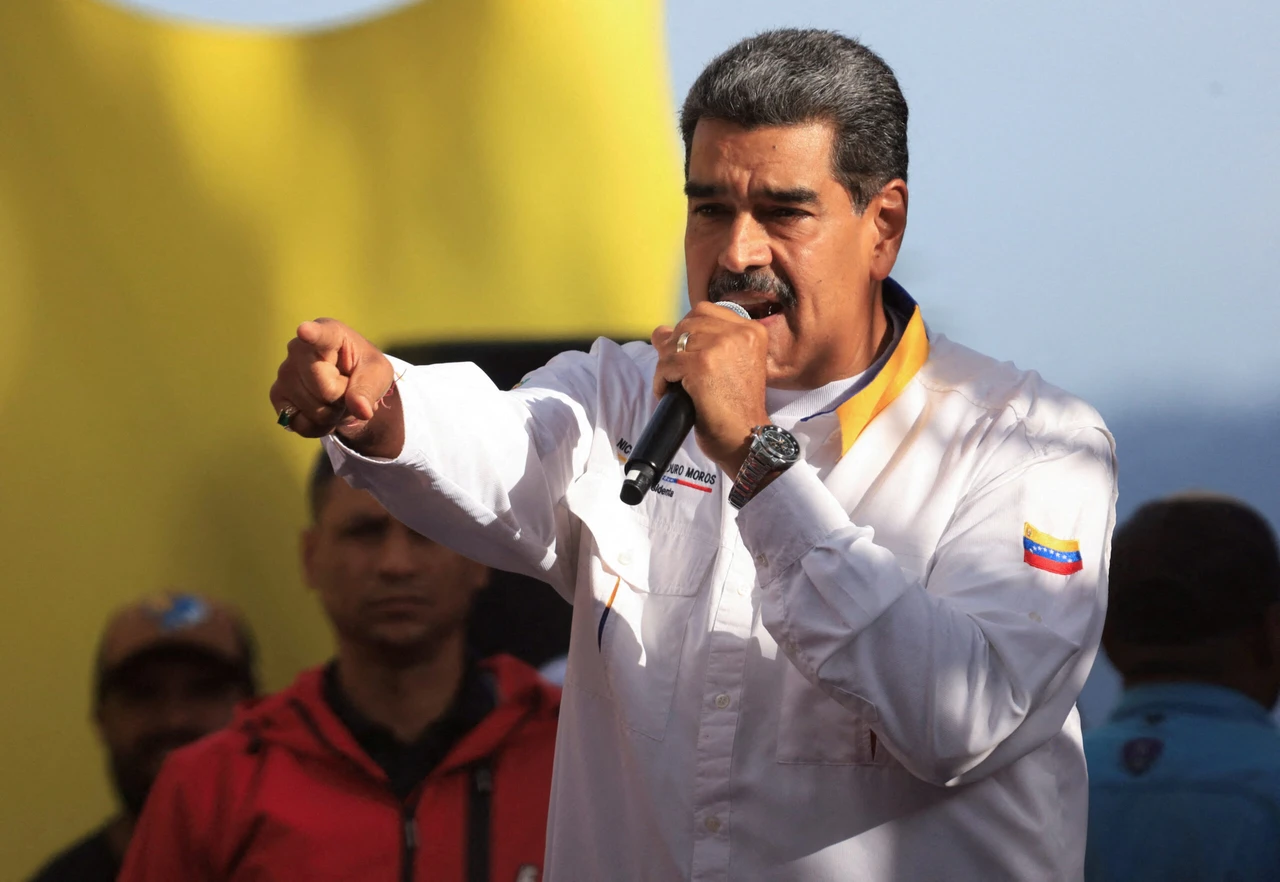Venezuela’s Maduro deletes WhatsApp, labeling it spy tool
 Venezuelan President Nicolas Maduro speaks during a march amid the disputed presidential election, in Caracas, Venezuela August 3, 2024. (Reuters Photo)
Venezuelan President Nicolas Maduro speaks during a march amid the disputed presidential election, in Caracas, Venezuela August 3, 2024. (Reuters Photo)
In a bold move reflecting growing tensions between Venezuela and external influences, President Nicolas Maduro has publicly condemned WhatsApp, accusing the popular messaging platform of espionage.
This declaration comes amid a broader push by Maduro’s government to shift Venezuelans away from U.S.-based technologies and toward alternatives perceived as safer.
Maduro’s accusation
During a meeting with fishing and agricultural sector representatives at the Miraflores Presidential Palace in Caracas, Maduro accused WhatsApp of engaging in espionage activities.
He claimed that the platform had handed over user information to Colombian drug traffickers and was waging psychological warfare against those who oppose violence and coups in Venezuela.
He also said that the app is part of a broader psychological war aimed at destabilizing the country by spreading hate and division.
WeChat, Telegram alternatives
Maduro recommended that Venezuelans move away from WhatsApp, advocating for the use of WeChat and Telegram instead. In a live broadcast, Maduro deleted WhatsApp from his phone, urging citizens to follow suit to protect their security.
I am going to break relations with WhatsApp because they are using it to threaten Venezuela. And then I am going to delete my WhatsApp from my phone. I would gradually move my contacts to Telegram
Nicolas Maduro
Instagram, TikTok criticism
Maduro criticized other social media platforms, including Instagram and TikTok. He accused these platforms of fostering hate and fascism, contributing to the division among Venezuelans.
I accuse Instagram of its responsibility in the installation of hatred to divide Venezuelans. I request recommendations from my security team to regulate these platforms
Nicolas Maduro
Political context
The call to abandon WhatsApp comes in the wake of disputed presidential election results, where Maduro claimed victory with 52% of the vote against opposition candidate Edmundo González Urrutia’s 43%. The opposition has accused Maduro of electoral fraud and is challenging the results. In response, Maduro has intensified his rhetoric against digital platforms, associating them with the opposition’s attempts to destabilize his government.
Political support
Diosdado Cabello, vice-president of the ruling United Socialist Party of Venezuela (PSUV), supported Maduro’s stance, saying, “We will go back to the stone age if necessary, but we will not allow social networks to overthrow the government.”



